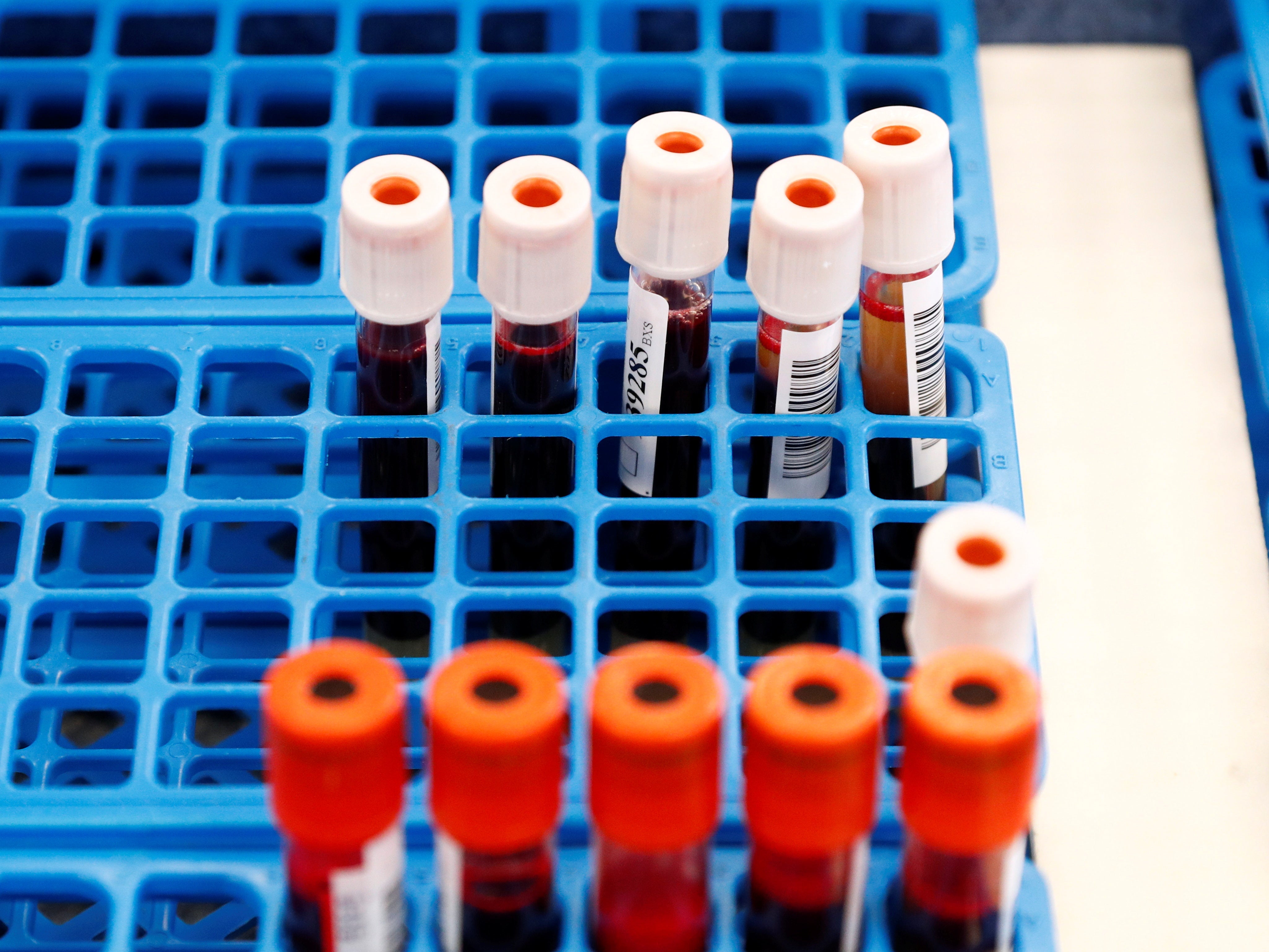NHS to trial ‘game-changer’ blood test able to detect more than 50 cancers
Hoped test will help find cancers before symptoms even show

Your support helps us to tell the story
From reproductive rights to climate change to Big Tech, The Independent is on the ground when the story is developing. Whether it's investigating the financials of Elon Musk's pro-Trump PAC or producing our latest documentary, 'The A Word', which shines a light on the American women fighting for reproductive rights, we know how important it is to parse out the facts from the messaging.
At such a critical moment in US history, we need reporters on the ground. Your donation allows us to keep sending journalists to speak to both sides of the story.
The Independent is trusted by Americans across the entire political spectrum. And unlike many other quality news outlets, we choose not to lock Americans out of our reporting and analysis with paywalls. We believe quality journalism should be available to everyone, paid for by those who can afford it.
Your support makes all the difference.A new blood test that can detect more than 50 types of cancer, often before symptoms show, is to be trialled on the NHS.
The Galleri test has been described as a “game-changer”, after studies suggested it can identify many types of cancer that are difficult to diagnose early, such as head and neck, ovarian, pancreatic and oesophageal.
Research published in March in the leading journal, Annals of Oncology, found that more than 99 per cent of positive results were accurate in a trial using samples from more than 1,200 people.
It is the first such test able to identify so many types of cancer — including lung, bowel, ovarian and pancreatic — and diagnose in which tissue the cancer originated, which it did with 93 per cent accuracy overall.
It will now be piloted on 165,000 patients in mid-2021 after a deal was struck with NHS England, the health service’s chief executive Sir Simon Stevens announced.
If the programme shows that the test also works as expected for people without symptoms, it will be rolled out to become routinely available.
The test — developed with funding from US firm, Grail — could help the NHS meet its goal of increasing the proportion of cancers caught early, which can be the key to reducing cancer mortality.
Patients who have their condition diagnosed at stage one typically have between five and 10 times the chance of surviving compared with those found at stage four.
“While the good news is that cancer survival is now at a record high, over a thousand people every day are newly diagnosed with cancer,” Sir Simon said.
“Early detection — particularly for hard-to-treat conditions like ovarian and pancreatic cancer — has the potential to save many lives.
“This promising blood test could therefore be a game-changer in cancer care, helping thousands more people to get successful treatment.”
The NHS England pilot will include 140,000 participants aged 50 to 79 who have no symptoms but will have annual blood tests for three years. They will be identified through NHS records approached to take part.
Anyone with a positive test will be referred to the NHS for investigation.
Another 25,000 people with possible cancer symptoms will also be offered testing to speed up their diagnosis after being referred to hospital in the normal way.
Results of these studies are expected by 2023, and if outcomes are positive, then they would be expanded to involve around one million participants across 2024 and 2025.
Cancer detection in the UK is believed to been significantly compromised by disruption stemming from the coronavirus pandemic, with up to 50,000 people believed to have cancer that has not been diagnosed as a result.
Research by Macmillan Cancer Support found last month that this figure could double to 100,000 within a year if authorities fail to fully restore vital cancer health services — including check-ups, screening and referrals — that have been cancelled or paused as a result of coronavirus.
The charity warned it could take at least 18 months to identify those who have developed cancer since the pandemic began.
“We are building a world-leading diagnostics industry in the UK — not just for coronavirus but for other diseases too,” said Matt Hancock, the health secretary.
“This exciting and groundbreaking new blood test from Grail will give us another tool to give more people the very best chance of survival, demonstrating how the UK continues to lead the way in using the latest innovative treatments to help patients.
“Many of us know a loved one who has battled against cancer and have seen first-hand the impact of this deadly disease.”
The test works by looking for cell-free DNA, which leaks from tumours into the bloodstream.
As this can leak from other cell-types as well, the test analyses chemical changes to the cell-free DNA called “methylation” — a process that controls gene expression, but when acting abnormally can fuel tumour growth.
According to the results published in March, 99.3 per cent of blood tests showing a patient had cancer were correct, but it was significantly more likely to fail to detect a cancer that was present.
Overall, across more than 50 types of cancer, the illness was correctly diagnosed in 18 per cent of those with stage one cancer. For stages two, three and four, the success rate rose to 43 per cent, 81 per cent, and 93 per cent, respectively.
However, this varied between cancer type — often with encouraging results in usually hard-to-detect tumours — and experts suggested at the time that the test could be fine-tuned to improve early detection.
Additional reporting by PA
Subscribe to Independent Premium to bookmark this article
Want to bookmark your favourite articles and stories to read or reference later? Start your Independent Premium subscription today.




Join our commenting forum
Join thought-provoking conversations, follow other Independent readers and see their replies
Comments